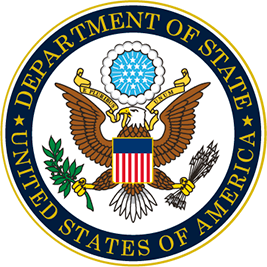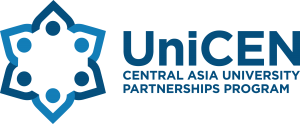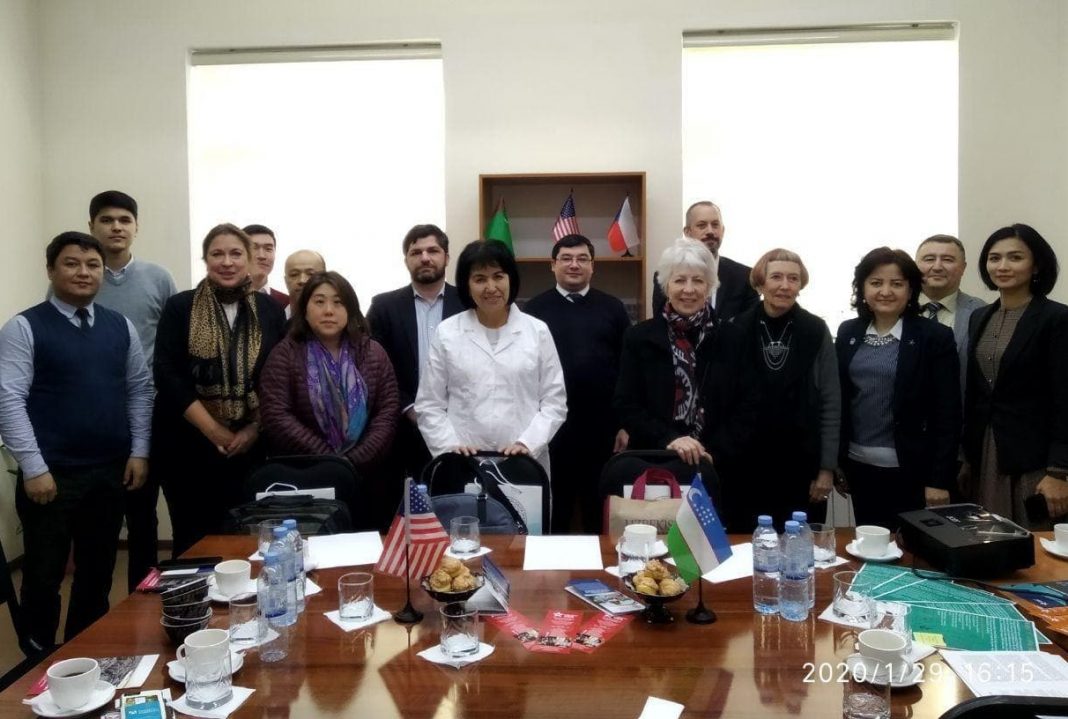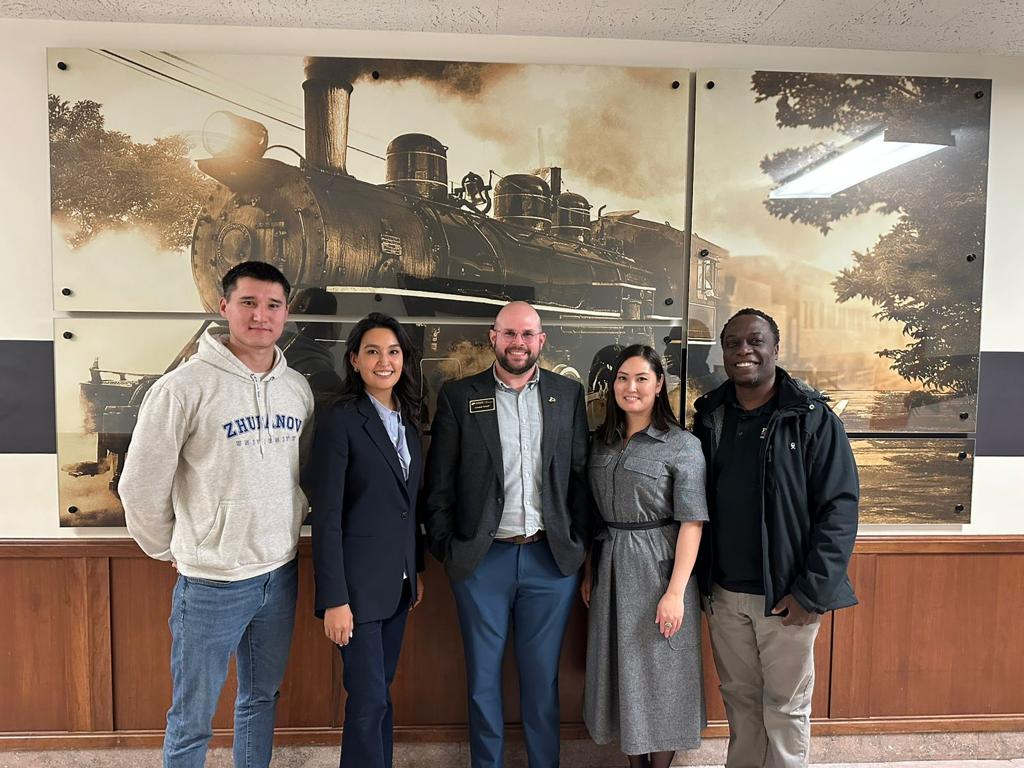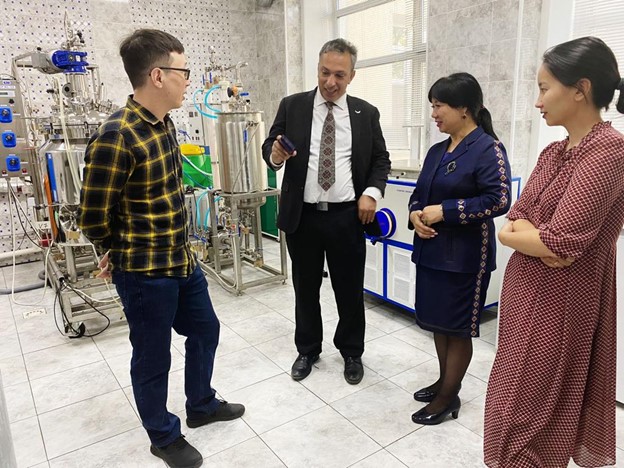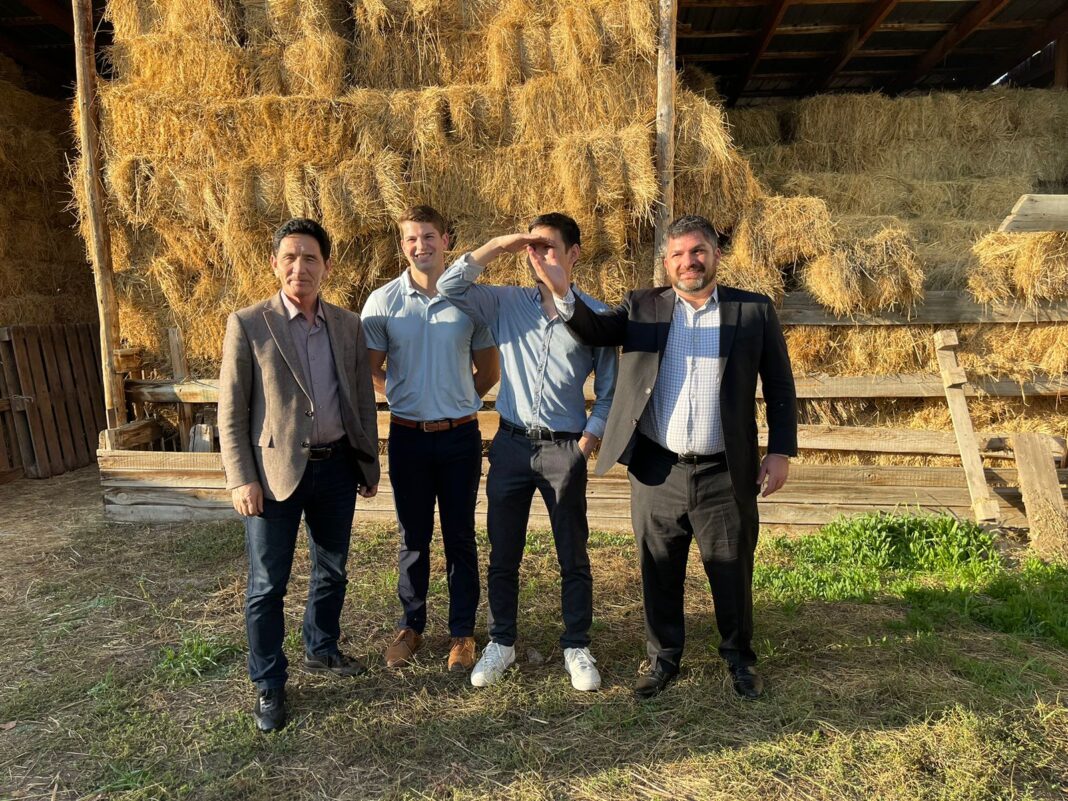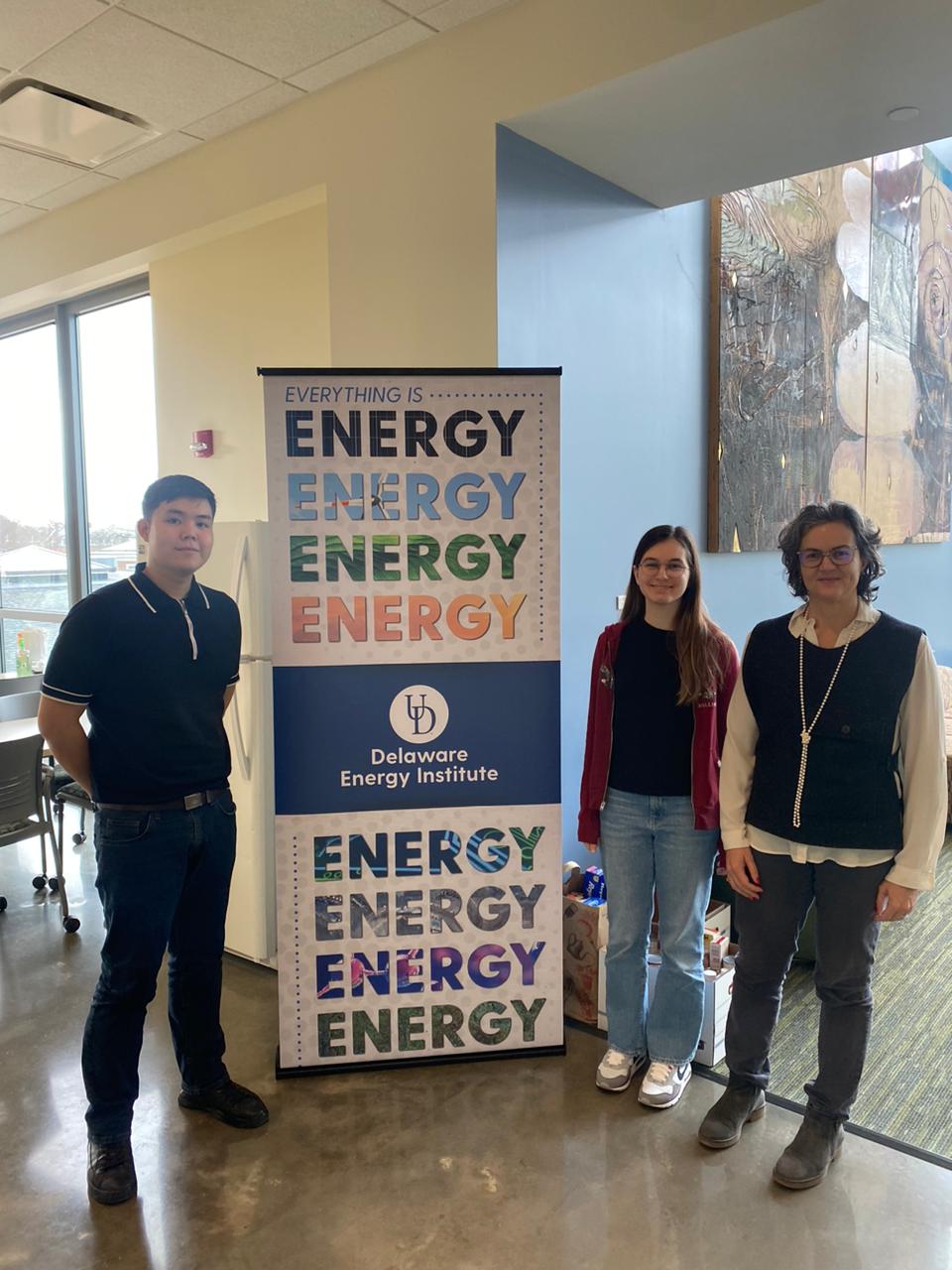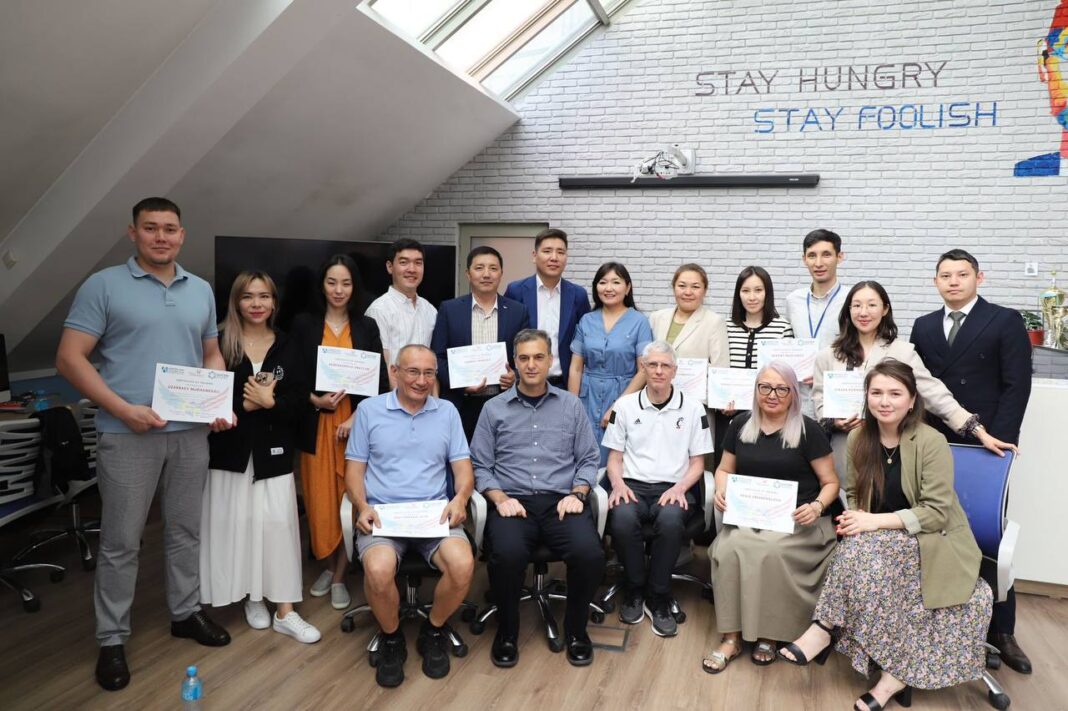Responding to the global COVID-19 pandemic, university-based makerspaces provide student-driven solutions for hospitals and companies. Through the Central Asia University Partnerships Program (UniCEN), administered by American Councils for International Education and funded by the U.S. State Department through the U.S. Embassy in Tashkent, faculty and administrators at the University of Wisconsin-Madison and Tashkent Chemical Technical Institute (TCTI) are establishing a new makerspace for students in science, technology, and engineering. The goal is to help prepare students build the skills of the 21st century workforce.
Dr. Lennon Rodgers, director of University of Wisconsin’s Grainger Engineering Design Innovation Lab, delivered four online workshops for staff and students at TCTI about prototyping facilities and programs in the university setting, including real-world collaboration between the university and the public and private sectors to meet global challenges.
The U.S. and Uzbek experts, along with 35 students, explored the current need to launch a maker space at TCTI. Partners outlined a strategic plan for the development of a makerspace at TCTI, developed a mission statement, identified a lab manager, and began to plan educational content. Dr. Rodgers purchased a set of electronics equipment for TCTI students and faculty to assemble and integrate. A new collaborative course on microcontrollers and electronics is planned at both institutions.

